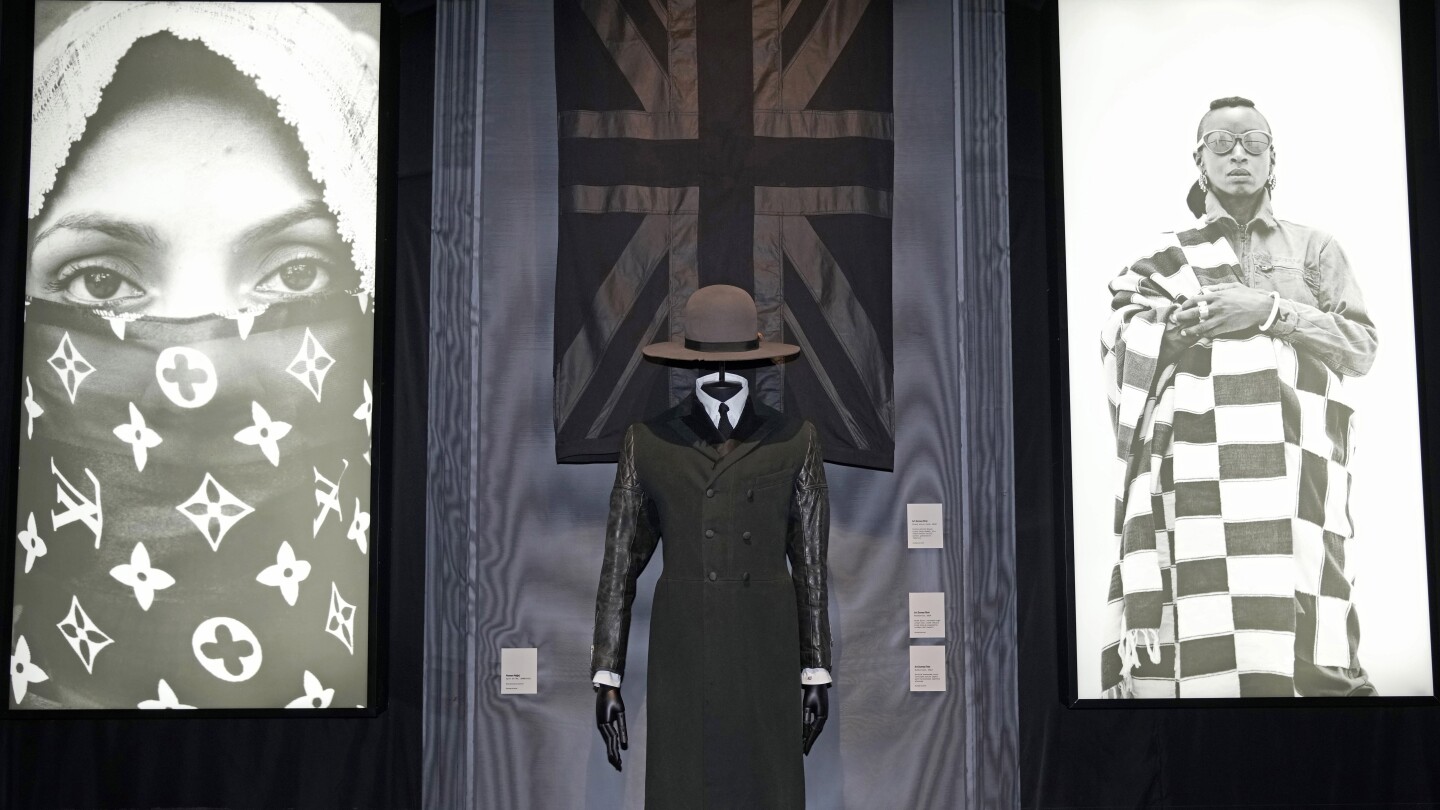LONDON (AP) — A new exhibition is opening in London to chart for the first time the contributions that Black British culture made to U.K. fashion and design history and to celebrate Black designers who haven’t received public recognition.
“The Missing Thread: Untold Stories of Black British Fashion” at central London’s Somerset House, which opens Thursday, pays tribute to the influence of Black designers in fashion from the 1970s. But it also spotlights the racism and other barriers they faced in an industry that remains difficult to break into for people of color.
Curators said that the idea of a display celebrating Black fashion and culture has germinated for some time. But it was only after the 2020 death of George Floyd at the hands of U.S. police — and the global eruption of protests against racial injustice that was triggered — that momentum gathered for a show that also features broader social and political context, such as the rise of anti-immigration sentiment and overt racism in Britain in the 1970s and ‘80s.
“Even if you have heard of these designers, people have no idea of the trials and tribulations they went through,” said Harris Elliott, one of the exhibition’s curators.
The exhibition opens with an entrance made to look like a small house built with colorful measuring tape. Elliott, who created the installation, said that the house symbolized the fragility of hopes and dreams experienced by early Caribbean migrants to the U.K., many of whom were skilled tailors but were ignored once they arrived in Britain.
“You come as a tailor, you end up working in a factory or working on a bus,” Elliott said.
One success story was Bruce Oldfield, the veteran couture designer who worked closely with Princess Diana and, more recently, made Queen Camilla’s coronation gown. Oldfield was one of the first visible Black designers in the U.K. in the ‘70s and ’80s, and the exhibition featured a glamorous red silk embroidered dress worn by Diana in 1987.
But Oldfield — who had a Jamaican father — is rarely referenced as a Black designer, and has never championed Black culture.
A big portion of the exhibition is dedicated to the work of Joe Casely-Hayford, a leading Black fashion designer in the ‘80s and ’90s who is largely unknown or forgotten in mainstream fashion history. The designer, who worked with U2, inspired a generation of Black Britons and should have received the same recognition as better-known designers like Paul Smith and Vivienne Westwood, curators said.
Andrew Ibi, another of the show’s curators, said that he hoped the exhibition will inspire more young Black people to enter the creative industries.
“If you don’t see people like you, well then you don’t think you can do that. And that was largely a problem for Black designers at the time,” Ibi said. “We hope this exhibition acts as a legacy for young people who see it and say ‘look at this rich culture, I can do what I want, I can be an artist, photographer, designer.’”
“The Missing Thread” will run until Jan. 7.

